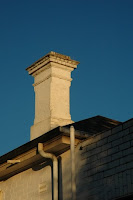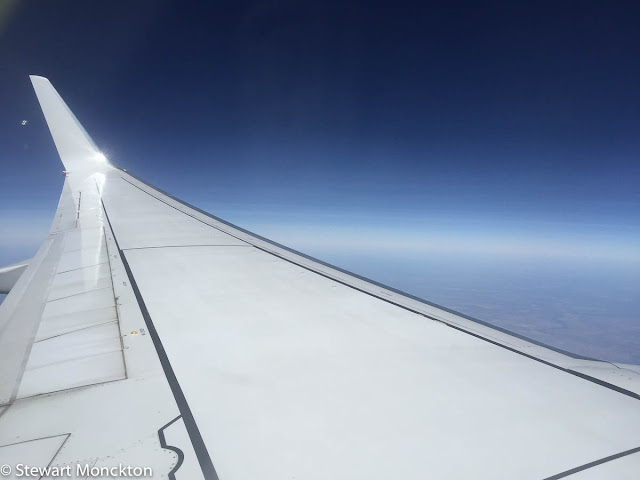Nightfall.



It is a time that is not really night and not really day, dusk, a time for change. It’s time for the day workers to pack up their gear and head for home. The night shift, with furtive rustles and twitching whiskers makes ready for the long hours ahead. As I walk away from the bright lights of the office into the darkness of a growing evening I join the day shift on its journey home. Me to warmth, food and maybe a glass of wine - them to colder places, where the long winter nights will stretch out before them and morning will be slow in coming.
Birds call and gather in sheltered places, the calls reaffirming that they are still alive and the shelter offering a better chance of meeting the next day. Sparrows gather up the platform scraps and flirt with death on the rail lines. The high energy commuter snacks will build up fat in bird and man, helping the bird through the cold foodless night and maybe doing less good to the commuter. As the night passes the bird will burn off the fat for energy and warmth and it will meet the next day lighter, thinner but alive. In the long chill nights of a northern winter, some birds can shed almost 30% of their body weight.
On the platform the commuters are less busy, trapped in the hurry up and wait of public transport. Rushing for a train that will probably be late, but may not be. It’s never late on the days you are delayed! On rainy nights the windows cloud and fog, but never as completely as the winter night buses home from Wells or Bath where passenger navigation was more Zen than science. Most workers gather in small groups and maybe talk; late travelling students gather in noisier groups, pushing back their own darkness with shared jokes, illicit cigarettes and shared music. I never thought Melbourne had cold winters until I travelled by public transport.
The walk home is better than the train ride, if longer. The low angle of the sun sheds a new light on buildings and trees, colours can glow for a while. But what caused me the most surprise on winter evenings was the noise. A little over halfway home and already thinking about a cup of tea was a parrot roost. Hundreds of Rainbow Lorikeets would gather in the plane trees of a Surrey Hills junction. Even from a hundred yards away you could hear the stunning collection of noises these birds produced. And from all directions smaller groups would join in, calling as they arrived. The leaves of the plane trees are large, robust and seem to hang on to their tree with remarkable persistence. The birds gathered, sheltered, within the leaves for about a month, until at last the leaves were gone. The leaf fall was the final abscission of last summer’s warmth, and the parrots went elsewhere. Magpies and Currawongs call from tree tops and lamp posts, and as I walk past the glowing railway stations the alarm call of Blackbirds fill the air. A cat or possum or even an urban owl stirring up trouble.





 By day the bats also hang around - formerly in Melbourne’s Botanic Gardens, but now in riverside trees along the Yarra a little further north. By day they hang and sleep and squabble. By night they fly out in search of food in groups of twos and threes. Large Fruit bats - Grey Headed Flying Foxes - with a wingspan approaching a meter in length flap on leathered wings over the suburbs and land in trees with fruit or flowers. The flapping of the wings sounds like the flap of a beach towel being shaken free of sand, a long sound in the darkness. They talk to each other in short sharp clicks and squeaks and raise to flight in protest if approached. In a torch beam they look strange and ill adapted as they crawl over branches and up the trunks of trees, the finger wings flapping like poorly tailored clothes. I think it takes a real enthusiast to find them attractive.
By day the bats also hang around - formerly in Melbourne’s Botanic Gardens, but now in riverside trees along the Yarra a little further north. By day they hang and sleep and squabble. By night they fly out in search of food in groups of twos and threes. Large Fruit bats - Grey Headed Flying Foxes - with a wingspan approaching a meter in length flap on leathered wings over the suburbs and land in trees with fruit or flowers. The flapping of the wings sounds like the flap of a beach towel being shaken free of sand, a long sound in the darkness. They talk to each other in short sharp clicks and squeaks and raise to flight in protest if approached. In a torch beam they look strange and ill adapted as they crawl over branches and up the trunks of trees, the finger wings flapping like poorly tailored clothes. I think it takes a real enthusiast to find them attractive.If the distances are not too long, walking is preferable to waiting as a means of transport. And I pass the final train station on my way home - its light look warm and inviting, but I know this to be a lie. Train stations seem through some miracle of architecture to always be hotter or colder than the places around them. They defy some law of nature and in the winter are bitter and draughty places. The light from my own home does promise warmth and comfort, but I am struck by a thought as I push open the door.









Comments